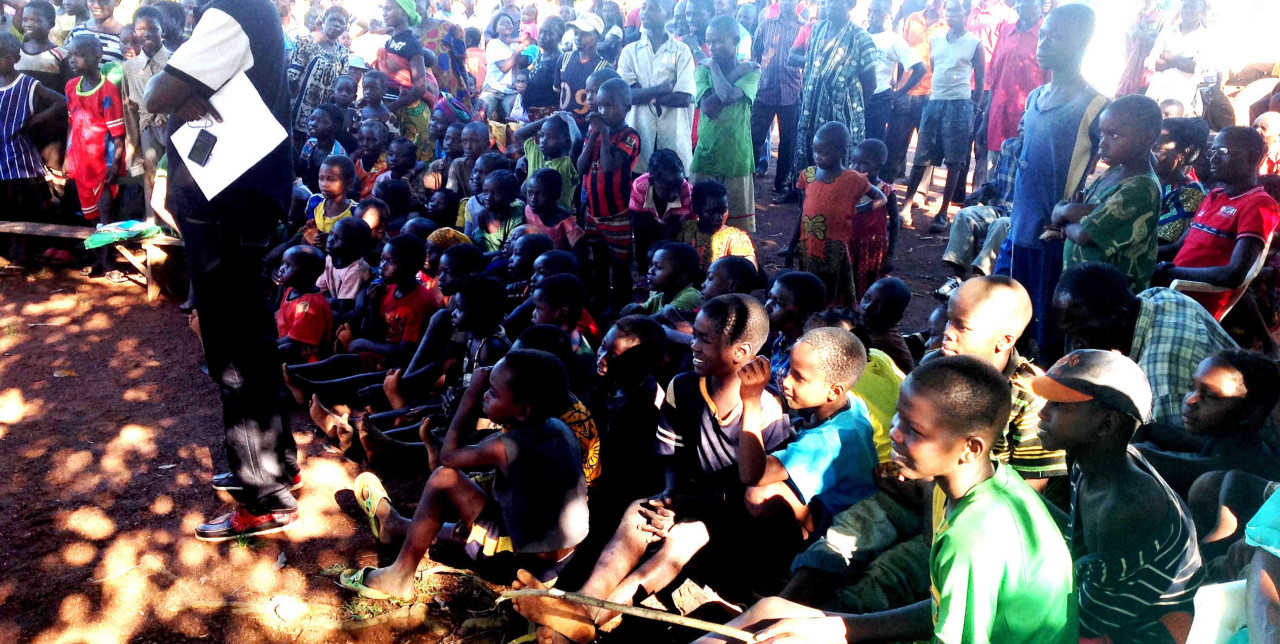17-05-2017 | di COOPI
CAR: when education becomes an emergency
Up until now, within the Central African Republic, there are thousands of South Sudanese refugees escaping the crisis in their country. Among this immense number of people, the majority are children: they are often unaccompanied and almost always they need to regain their balance in life, after experiencing the traumatic move. Since 2009, COOPI has been intervening in the region of Haut Mbomou with a protection and educational program to promote the rights of children and women. COOPI's experience in managing these kinds of situations shows that education for refugee children is the best solution to guarantee them an efficacious social reintegration.
COOPI's intervention
Nonetheless, there are some questions to be considered: how can we proceed to allow non-educated children take up their studies again? And how should we act in order to prepare the South Sudanese little refugees in integrating them in the Central African education system, which is French-speaking, while their education was in English?
From December 2016 to May 2017, thanks to the funds of UNICEF, COOPI has been able to increase an emergency educational program for South Sudanese refugees in CAR as well as for all vulnerable children in Obo town, in the Haut-Mbomou region.
Encouraging results
While implementing this project, we have activated 11 temporary learning and protection centres for childhoods: 4 in the South Sudanese refugee area and 7 in Obo town. In these centres children attend accelerated retraining courses and practice recreational activities. A total of 2015 children (947 girls and 1068 boys) have attended these temporary centres: educated children have then been able to restart their studies, while the children who cannot go to the school are being orientated towards workshops to attend courses of carpentry, bread making and dressmaking.




 Central African Republic
Central African Republic